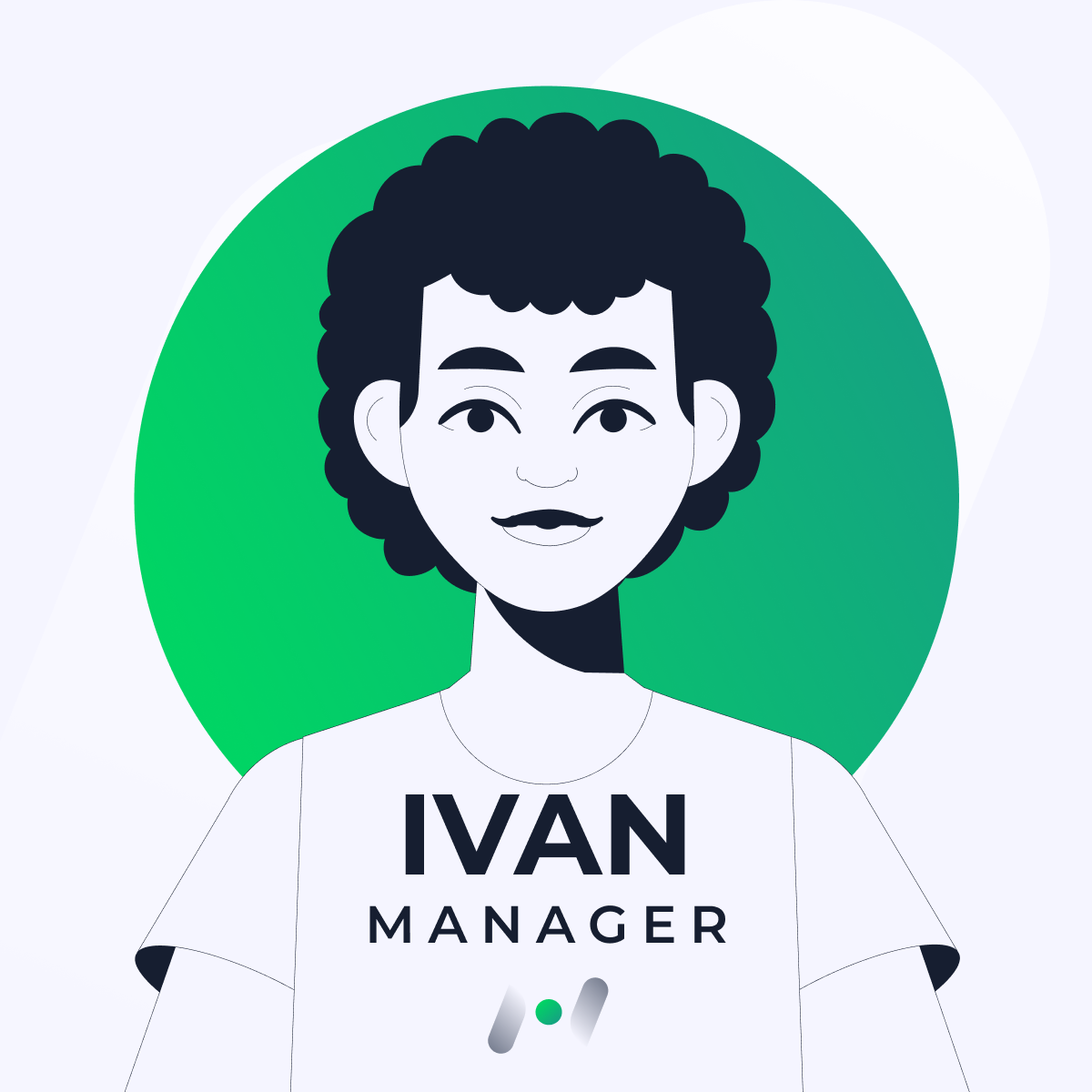How It All Started
At Pay2.House, we observe every day how webmasters grow and scale. And also how they lose budgets due to payment failures, fraud, or opaque analytics. That's why we teamed up with TraffLab – a CPA network that helps arbitrage teams build their partner and analytical infrastructure without breakdowns, misunderstandings, or unclear terms.
In this interview, we asked TraffLab 10 relevant questions we often hear from our clients – buyers, team leads, and media buying agencies. We aimed to get honest and practical answers: how effective CPA infrastructure works, what to avoid in the beginning, and which tools help you grow in 2025.
If you work in CPA, are looking for a reliable partnership ecosystem, and want to better understand how to scale in today’s reality – read to the end.
1. How is analytics and tracking organized at TraffLab? What are the key performance metrics?
At TraffLab, we act as a bridge between two worlds with different interests – webmasters and advertisers. That’s why our analytics system is based not just on numbers but on the balance between both sides. We monitor every incoming traffic stream, assess volumes, conversion to launches, deal completion, traffic source variety, and processing speed. These metrics help us build a “natural filter”, only those partners pass through who can work stably and long-term.
We apply the same approach to advertisers. Using key parameters – GEO, sources, bids, payout frequency – we select those who offer the best EPC and greatest scaling potential. This allows us to maintain a strong economy on both sides, not worsening conditions for good partners but instead strengthening the best and motivating others to improve.
2. What are the top iGaming offers right now, and why? Are there GEO or traffic type specifics?
Currently, platform-based solutions like Soft2Bet and Extendy are dominating the market. Their technical stability and brand recognition make them easier to promote across multiple GEOs and more scalable. However, carefully selected unique brands in the right hands can perform even better – due to lower competition and higher CR.
Traffic distribution is also changing. Teams are moving away from Google and Facebook due to rising competition and stricter moderation. Demand is shifting toward alternative sources. As for GEOs, there's growing interest in Western Europe, Central Africa, Latin America, and Oceania. PWA formats remain popular, even though they often reduce traffic quality and conversion.
3. What do you think about the “one offer – one card” approach? How do virtual cards help webmasters?
The “one offer – one card” principle is no longer just a recommendation, it’s become a near-standard for teams working systematically and aiming for scale. It helps track spending accurately, monitor performance, quickly detect issues, and avoid cross-risk between sources.
Since ad platforms track payment methods, card diversity is a layer of protection and at scale, a necessity. Virtual cards, especially those that support mass issuing and flexible management like at Pay2.House, streamline processes significantly. But this also requires clear internal discipline and a solid expense tracking system within the team.
4. What are your traffic quality requirements and anti-fraud measures? What should webmasters avoid to stay safe?
At TraffLab, we don’t use vague terms like “good traffic.” Each deal has its own conditions, and we build our control system accordingly. We assess technical indicators – cookies, IPs, user agents, HTML requests, page depth and speed, postbacks. This allows us to filter fraud before it affects the results.
We pay particular attention to multi-accounting and source spoofing – these are critical for us. If fraud is confirmed, the account is blocked. Most importantly, we always emphasize to partners: don’t try to game the system, just stick to the terms. That’s what builds long-term, stable relationships.
5. What are the most common payment challenges for teams working with international offers?
The main issue is local payout restrictions. For example, in Brazil, payouts are only available via the PIX system to a local legal entity. In Singapore, Malta, and other jurisdictions, there are their own peculiarities. We can solve such cases, but they take time and a cost-benefit evaluation.
It’s much more efficient when a team has its own solution – flexible and universal, like Pay2.House. Mass payouts, multi-currency support, no bank attachment – this removes a huge load from the operations team and lets you focus on traffic.
6. What mistakes do you often see in high-potential teams, and how can they avoid losing momentum early on?
The most common mistake is relying on a single offer and avoiding testing. The team launches, scales, and succeeds but then the funnel dries up and things crash. Such teams lose momentum because they didn’t invest in hypotheses.
TraffLab recommend always budgeting time and funds for testing – new GEOs, sources, offers, partners, and payment options. A successful team isn’t just about profits. It’s about flexibility and the ability to adapt. That’s the kind of team we build long-term partnerships with.
7. What’s the most unconventional funnel you’ve seen that worked unexpectedly well?
During Ramadan, traffic in Muslim regions usually slows down – most teams pause their campaigns. We did the opposite: launched a test campaign in the GCC region (Saudi Arabia, UAE, Qatar, etc.) with an offer and creatives tailored to local culture.
With reduced competition, we achieved high reach, minimal CPC, and most importantly, a high-quality audience. The campaign saw record CR and broke even faster than usual. This case reminded us: non-obvious ideas can perform just as well as proven ones. What matters is structured testing and understanding the risks.
8. How important is the coordination of all infrastructure – from traffic to payments and support? What’s the role of services like Pay2.House?
Arbitrage hasn’t been a “one-man show” for a long time. It’s a full-fledged business – with staff, software, legal aspects, and of course, a payment system. Pay2.House in this setup is a key tool. Without it, you can’t launch.
A reliable payment system isn’t just “convenience.” It’s a guarantee that launches won’t break, funnels won’t collapse, and teams won’t lose money. When you can issue cards quickly, monitor transactions, and make mass payouts – it saves hours of work and provides confidence when scaling.
9. What advice would you give to teams looking to hit a consistent $10k+ daily turnover?
First – count everything. Not all profitable campaigns actually bring in real margin. Cost and ROI control is the foundation of scaling. Second – reinvest in growth. Don’t be afraid to hire, build reporting, and add tools.
And most importantly – don’t fixate on one model. Yesterday it was Colombia, today it could be Peru. Diversification equals stability. The strongest teams are those who adapt fast and aren’t afraid of change.
10. What trends and challenges do you see in arbitrage in 2025? What’s changing in traffic, offers, and payments?
Arbitrage is becoming more like a digital business. Teams are growing, bringing in analysts, designers, and AI solutions. Costs are rising, moderation is tougher, and conversion is dropping. Simple schemes don’t work anymore – only well-structured infrastructure delivers results.
Payments, analytics, marketing, security – everything needs to run smoothly. Here, fintech tools like Pay2.House are no longer optional but foundational. You simply can’t operate at scale without a reliable payment system and a sustainable model.
Conclusion
Arbitrage in 2025 isn’t about chaotic launches or fast “burnouts.” It’s about structure, solid infrastructure, and a team where every process is optimized to the smallest detail. Success today is impossible without proper analytics, strong partnerships, and a seamless financial setup.
At Pay2.House, we believe a strong backend isn’t a bonus – it’s the foundation. That’s why we partner with teams like TraffLab those who understand the market from the inside and help others grow. When tracking, offers, and payments work in sync, you don’t worry about problems. You focus on results. That’s the kind of infrastructure we’re building – together.








Be the first to share your opinion
We value your feedback — let us know what you think.